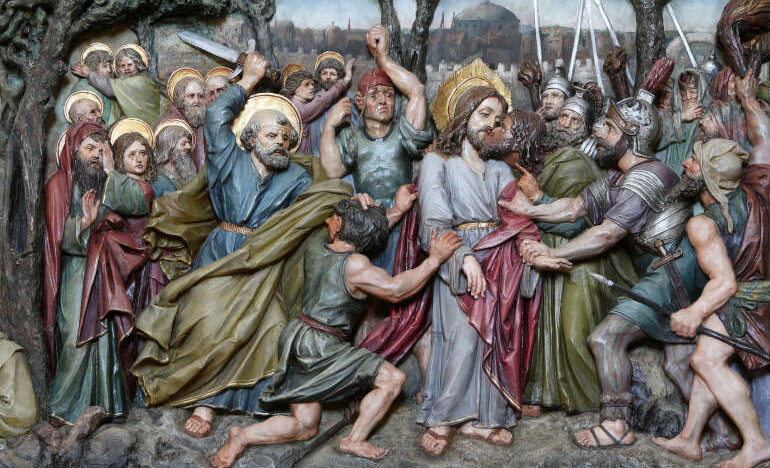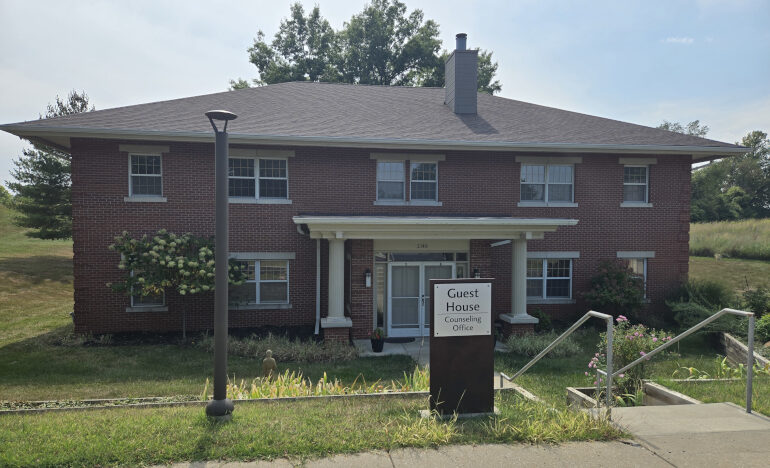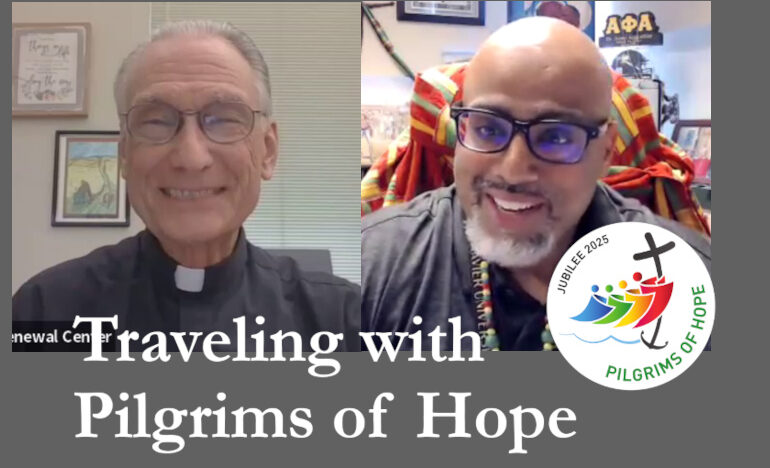Building a Community of Hope

Bill Nordenbrock, CPPS
I have a good friend who likes to say that when he looks at the mess that he sees in the world and the Church, it seems to him that God isn’t doing God’s job. The world and the Church is a mess and God doesn’t seem to do anything about it. While on one level he realizes that it is silly to blame God for what is human foibles and folly, it reflects his sense of hopelessness that as humans we will ever “get it right” without some divine intervention.
It is a part of the human condition, a part of our human psyche, to try to make sense of the world in which we live. We ask: What is going on here in this particular situation? Why is “this” happening? Whatever “this” happens to be. And believers, I think we ask: Where is God in this? And maybe most poignantly, when what is happening is disturbing, or painful, or just seems wrong to us, don’t we ask: Why does God allow this situation to be like his? Why doesn’t God do something about this? Doesn’t God love us? Isn’t God all-powerful?
What do you do when God disappoints you?
If that resonates with you, then you are part of a long history of God’s people raising their voices in lament. Crying out to God, expressing our pain and confusion; asking for divine intervention. God’s people have often come together as a community of lamentation.
I have heard Christians ask: Is it OK to complain to God? Is it OK to accuse God of abandoning us; of rejecting us and ignoring our pleas? Well, let’s look at the example of Jesus.
In the garden, on the eve of his crucifixion, his passion journey has already begun. This is a portrait of a very human Jesus who sees his situation (at least in how it is portrayed in the Gospels of Matthew and Mark) and what is to come and he is full of anguish. Jesus appears very fearful and uncertain. And Jesus cries out to a silent God and asks that he be spared; that this cup of suffering pass him by. But the fully divine Jesus, the Jesus who was one with the Father, accepted to suffer and pour out his life, placing his hope and trust in the will of God; the plan of God.
And let’s remember that the next day, as he drank from that cup of suffering, his last prayer to God, was to pray from a psalm of lament. Psalm 22 begins: “My God, my God, why have you abandoned me?” And with that prayer echoing on Calvary, Jesus died. And Mary wept. And God was silent. But the story did not end.
Unspoken, or at least unrecorded in the passion narrative, is how the prayer continues that Jesus begins.
Why are you so far from helping me,
from the words of my groaning?
O my God, I cry by day, but you did not answer;
and by night, but find no rest.
Yet, you are holy,
enthroned on the praises of Israel.
In you our ancestors trusted,
they trusted, and you delivered them.
In you they cried, and were saved;
in you they trusted and were not put to shame. (v.1b-5)
It is the whole of Psalm 22 that allows us to see in Jesus our example of faithful lament: To lament is the honest prayer of a transparent sprit in distress and a faithful soul that never abandons their trust in God.
I think for all of us, there are times when God is silent. There are times when we cry out, in grief, in disappointment, in frustration, in confusion — and God is silent. In these times, for us to lament is to pray in truth. It is to go to God with an open heart and open wounds. It is to pray with a spirit that is naked in the storm and it is to allow the Spirit of God to help us pray in that weakness.
So it is with the help of God’s own Spirit that we can cry out: This is how I am suffering.
We cry out like an abandoned child: This is the help that I need — come back to me.
To lament is to cry out in distress, but also with hope and persistent endurance. We pray: Even now, O God, we trust that you will return to save us. Even now we trust that your love and mercy will overcome our grief and despair; our confusion and uncertainty. We know that you, O God, are a God of unfailing love and mercy, and so we trust and place our hope in you; even when you are silent, even when you are slow to intervene.
When you look at our Church, is this sometimes your prayer? You are not alone. I also lament the unfulfilled promise of a gospel vision of a people in communion with one another and God; united as the Body of Christ in fulfilling the plan of God. It is easy to recognize and bemoan a lack of faithfulness in our Church. It is much harder to express that recognition in a prayer that remains grounded in hope.
Fr. Bill Nordenbrock will lead the retreat “Sacred Church — Sinful Church” Nov. 20-21 at Precious Blood Renewal Center. Learn more about the retreat here.
Through prayer and shared narratives, we will acknowledge the tension of living our faith in a Church of great grace that often disappoints us. This weekend retreat will help us create communities of lamentation and hope.
We don’t have to pray alone. William Blaine-Wallace writes in his book, When Tears Sing, that there is a grace in collective vulnerability, because it creates a relationship between us. Our shared lament is like a conversation where one can testify to their pain and know that others are with them and witness their distress. And he writes that this shared lament, this relationship forged in time crisis creates us together as a community of hope. When we face together our shame or disappointment in a sinful Church (or our despair in a society and culture that seems to be tearing itself apart from the inside), as believers we help one another to remember the faithfulness of God. Through shared lament, we remain a community of faith and together we move through our lament to a place of deep trust and we become a community of hope.
A community of hope — that is a pretty good description of the Church that we are called to be.
Never miss an article published on the Renewal Center website: Sign up to receive our newsletters.
[Bill Nordenbrock, CPPS is an ordained member of the Missionaries of the Precious Blood. He has held ministerial positions in pastoral care and has served the Precious Blood community in a variety of leadership and program administration positions. HIs work has include preaching retreats and parish missions, as well as, guiding the process of fostering communion and reconciliation for faith communities. He is the author of Beyond Accompaniment: Guiding a Fractured Community to Wholeness. (Liturgical Press, 2011)]
Photo © Zatletic | Dreamstime.com. “Jesus in the Garden of Gethsemane,” altarpiece in the church of Saint Matthew in Stitar, Croatia.
We’d Like to Hear From You!
We’d like to know what you think about this article. Send us a comment using the form below. Do you have a suggestion? Is there something you want to learn more about? Send us a note.
Related

Can You Help Support Our Guest House Mission?
The Missionaries of the Precious Blood, the religious society of priests and brothers who sponsor Precious Blood Renewal Center, are asking for donations to update and renovate the Renewal Center’s Guest House.

Pilgrims of Hope, Episode 8: Walking Outside Church Walls
Hosted by Fr. Ron Will, C.PP.S.
In this episode of the Jubilee Year video series, “Traveling with Pilgrims of Hope,” we talk with Ansel Augustine, M.Div., about his more than 25 years of ministry to youth, college students, prisoners and others travelling “outside the church walls.”
Categories
Assembling God's Puzzle Coffee with Padre Cooking & Spirituality Encounters of the 4th Kind Family Matters Reflections on the Eucharsitic Prayers Spiritual Resources Taize Prayers The Contemplative Life Traveling with Pilgrims of Hope Uncategorized Videos Week of Prayer for Christian Unity When you need a little help
